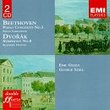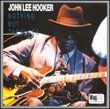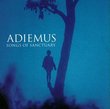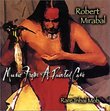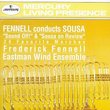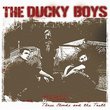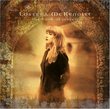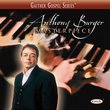| All Artists: Avi Avital, Mindy Kaufman, Eliran Avni, Arnaud Sussmann, Lily Francis, Eric Nowlin, Michal Korman, Aya Hamada Title: Dorman: Concertos for Mandolin, Piccolo, Piano and Concerto Grosso Members Wishing: 0 Total Copies: 0 Label: Naxos American Original Release Date: 1/1/2010 Re-Release Date: 1/26/2010 Genre: Classical Styles: Historical Periods, Classical (c.1770-1830) Number of Discs: 1 SwapaCD Credits: 1 UPC: 636943962022 |
Search - Avi Avital, Mindy Kaufman, Eliran Avni :: Dorman: Concertos for Mandolin, Piccolo, Piano and Concerto Grosso
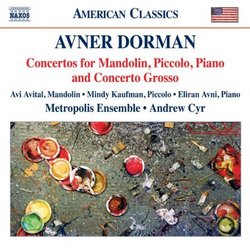 | Avi Avital, Mindy Kaufman, Eliran Avni Dorman: Concertos for Mandolin, Piccolo, Piano and Concerto Grosso Genre: Classical A graduate of the Juilliard School, — where he earned a Doctorate in — Composition, and a protégé of John — Corigliano and Zubin Mehta, award winning — Avner Dorman is emerging as — one of the leading composers of his... more » |
Larger Image |
CD DetailsSynopsis
Product Description A graduate of the Juilliard School, where he earned a Doctorate in Composition, and a protégé of John Corigliano and Zubin Mehta, award winning Avner Dorman is emerging as one of the leading composers of his gene championed by many of the world's finest conductors. The diverse concertos presented here combine the excitement and spontaneity associated with jazz, rock or ethnic music within an engaging neo-baroque idiom. Dorman writes: 'I have always loved baroque music the clear rhythms, the strong reliance on' Avner Dorman's piano music is available on Naxos 8.579001. Similar CDs
Similarly Requested CDs
|
CD ReviewsPay attention! Milena Z. Fisher | USA | 02/09/2010 (5 out of 5 stars) "I believe that Avner Dorman is the one of the most talented composers of our time; his "Concertos for Mandolin, Piccolo, Piano and Concerto Grosso" is yet another, very strong proof of it. One can immediately tell that the composer is "a citizen of the world"; his unique approach to music shows a very deep understanding of the World's musical tradition. Dorman has his own way of merging and incorporating different themes into deeply sophisticated, never "generic" always lively structures. In my opinion he represents a new generation of young, unpretentious, highly educated composers, who are free of musical prejudice and have immense respect for a true virtuosity in music on every stage of its creation. The concertos are composed to awe; they bring out the best of the soloists. Each concerto is vibrant, full of life but crafted with unprecedented intellectual precision. I highly recommend this record and can not wait for more of Avner Dorman in the future." Eclectic Syntheses: The Contempory Composer Dr. Debra Jan Bibel | Oakland, CA USA | 01/28/2010 (4 out of 5 stars) "The "global village" is the new reality. Musicians of one land continually borrow and incorporate musics of another region...and sometimes of another era. The modern classical composer is no different. Jazz and nonindigenous ethnic idioms have found their way into the compositions of Lou Harrison, Nikolai Kapustin, Derek Bremel, and Osvaldo Golijov, for instance, and we recall Stravinky's neo-romanticism. Avner Dorman loves the classical structure of the Baroque, but he has a feeling for various ethnic sounds, particularly Mediterranean and Near Eastern. This recording of concerti is such an odd duck. The first, a mandolin concerto does not sound remotely like Vivaldi's; indeed, it is dark, quiet, brooding, more noir, with an ominous bass pulse in its last movement. The piccolo concerto, with piano, on the other hand, is lively, with birdlike thrills and is more suggestive of high Baroque. Dorman thinks that this music suggests the Middle East or Mediterranean, but I hear in the first movement Piazzolla's new tango in its rhythmic chords. The second movement is a shepherd's romance; the final movement is a bright, wild dance. The concerto grosso, featuring harpsichord, violin, viola, and cello, may have an underpinning of Handel and Vivaldi, but it sometimes seems East European in outlook and in its contemplative minimalism. The final work, a piano concerto is the earliest, written with Dorman was but 19 years old; it is romantic, jazzy, and solidly classical. In summary, this album of neo-baroque explorations and ethnic borrowings is interesting, unusual, and very accessible, but I feel that Avner Dorman is only in his early period of composing and may likely push beyond these fusions."
|


